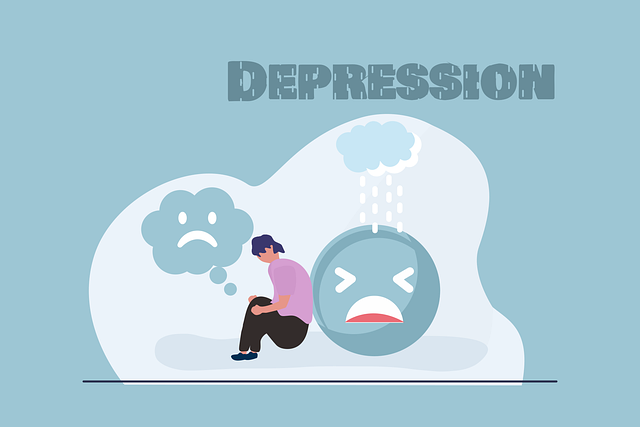Greenwood Village Mindfulness Therapy tackles the significant obstacle of mental illness stigma with a proactive, holistic approach. By promoting empathy, open conversations, self-care routines, and early intervention, they foster a supportive environment for improved mental health outcomes. Through community engagement, education workshops, and mindfulness practices, Greenwood Village leads the charge against stigma, enabling individuals to seek help without judgment and build resilience for lasting well-being.
Mental illness stigma remains a significant barrier to access and treatment, negatively impacting individuals’ well-being. This article explores strategies to reduce this societal burden, focusing on understanding the root causes and consequences of mental health stigma. We highlight innovative approaches like Greenwood Village Mindfulness Therapy, offering holistic solutions for personal growth. Additionally, we emphasize the power of community engagement and education as sustainable methods to foster understanding and acceptance.
- Understanding Stigma and Its Impact on Mental Health
- Greenwood Village Mindfulness Therapy: A Holistic Approach to Reducing Stigma
- Community Engagement and Education: Long-Lasting Solutions for Stigma Reduction
Understanding Stigma and Its Impact on Mental Health

Stigma surrounding mental illness is a significant barrier to individuals seeking help and support, often leading to prolonged suffering in silence. It’s essential to understand that stigma isn’t merely an attitudinal issue; it has tangible effects on mental health outcomes. When communities and individuals internalize stigmatizing beliefs, people with mental health challenges may face discrimination, social isolation, and reduced access to quality care. This can exacerbate existing conditions or prevent those at risk from developing healthy coping mechanisms.
Efforts to reduce stigma, like those offered by Greenwood Village Mindfulness Therapy, often focus on empathy-building strategies that foster understanding and connection. By promoting open conversations about mental health, encouraging self-care routine development, and emphasizing the importance of early intervention in depression prevention, we can create a more supportive environment. These initiatives are crucial steps towards ensuring better mental health outcomes for all.
Greenwood Village Mindfulness Therapy: A Holistic Approach to Reducing Stigma

Greenwood Village Mindfulness Therapy takes a holistic approach to mental illness stigma reduction, focusing on fostering understanding and empathy within communities. This innovative program combines traditional therapy methods with modern mindfulness practices, such as Mental Wellness Journaling Exercise Guidance and Compassion Cultivation Practices, to empower individuals and challenge societal perceptions. By engaging in these therapeutic techniques, participants develop enhanced self-awareness and learn to cultivate compassion towards themselves and others, thereby contributing to a more accepting and supportive environment for mental wellness coaching programs development.
Through group sessions and personalized coaching, Greenwood Village Mindfulness Therapy encourages open dialogue about mental health experiences, breaking down barriers and fostering a sense of community. The program’s unique blend of evidence-based strategies and compassionate cultivation practices helps individuals navigate their personal journeys with resilience, ultimately reducing the stigma associated with seeking help and promoting overall well-being.
Community Engagement and Education: Long-Lasting Solutions for Stigma Reduction

Community engagement and education are powerful tools in the ongoing battle to reduce stigma surrounding mental illness. By fostering open dialogues and increasing awareness, Greenwood Village Mindfulness Therapy can play a pivotal role in transforming perceptions. Through workshops, community events, and educational programs, individuals learn about different forms of mental health conditions and dispel common myths and misconceptions. This approach not only broadens understanding but also encourages empathy building strategies, allowing people to connect with others’ experiences on a deeper level.
By integrating mindfulness meditation practices into these educational initiatives, communities can promote emotional well-being promotion techniques that enhance resilience and coping mechanisms. These efforts create an environment where individuals feel supported and empowered to seek help without fear of judgment, ultimately contributing to lasting positive changes in mental health support and accessibility.
Mental illness stigma is a pervasive issue, but with dedicated efforts like those demonstrated by Greenwood Village Mindfulness Therapy, coupled with community engagement and education, we can forge a path towards a more accepting society. By adopting holistic approaches and fostering open dialogue, we can reduce the impact of stigma on mental health, ensuring that individuals receive the support and care they need without fear of judgment or discrimination.








